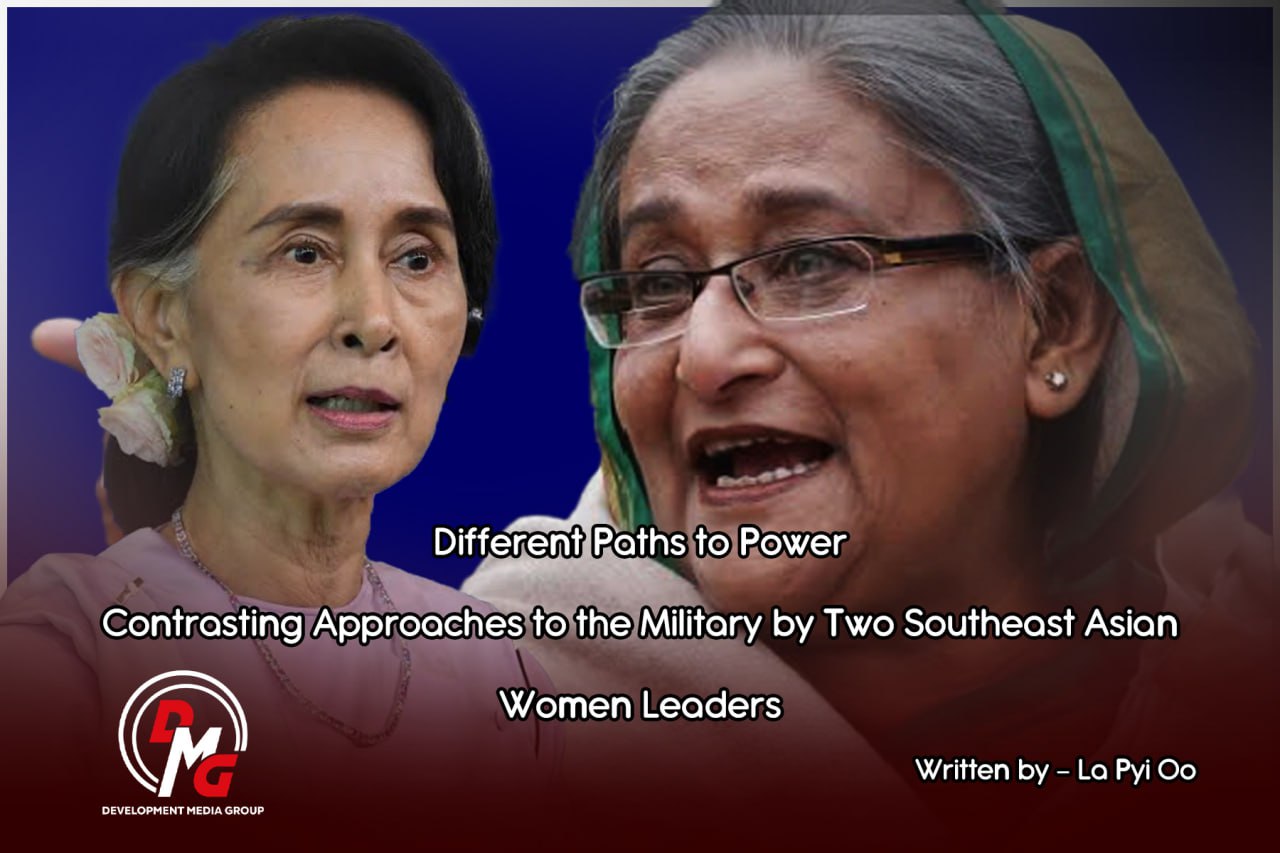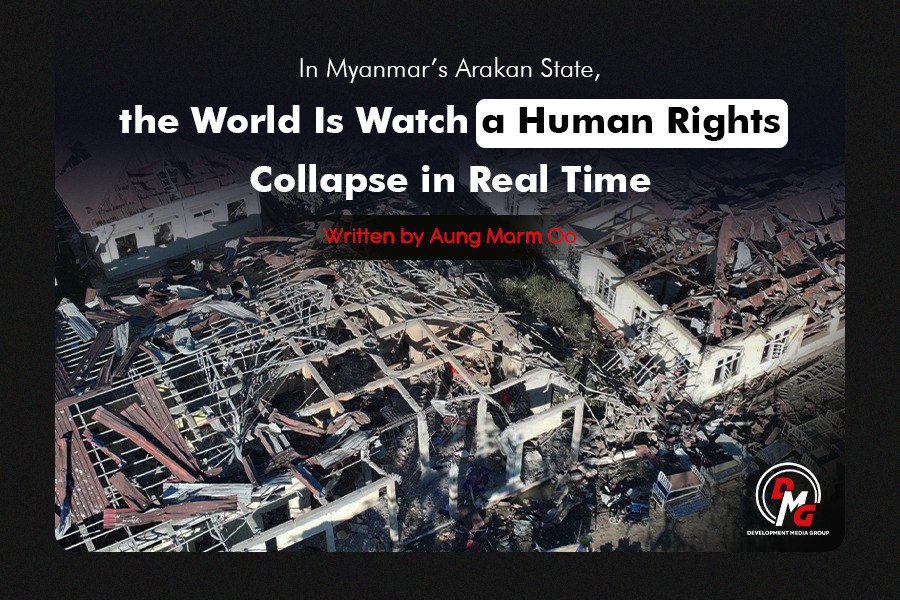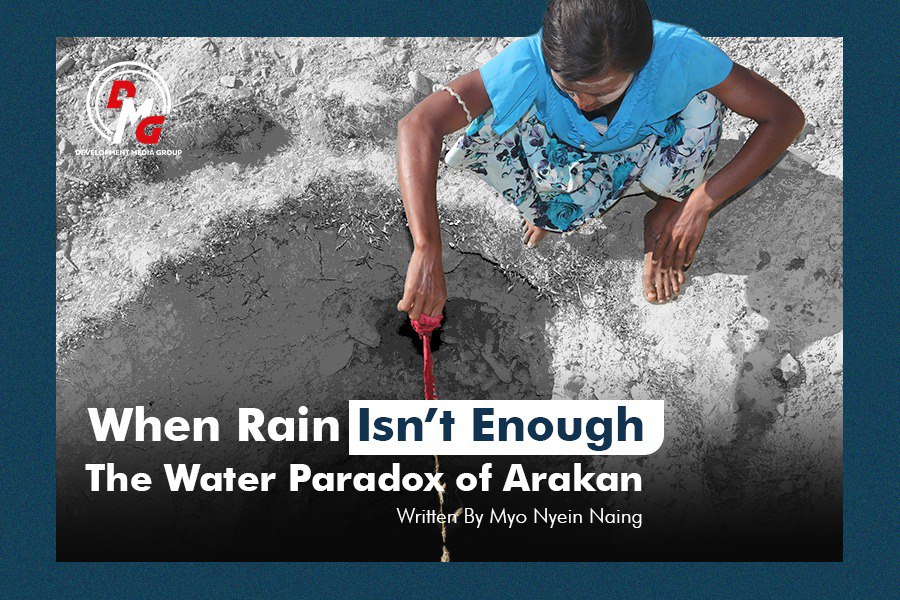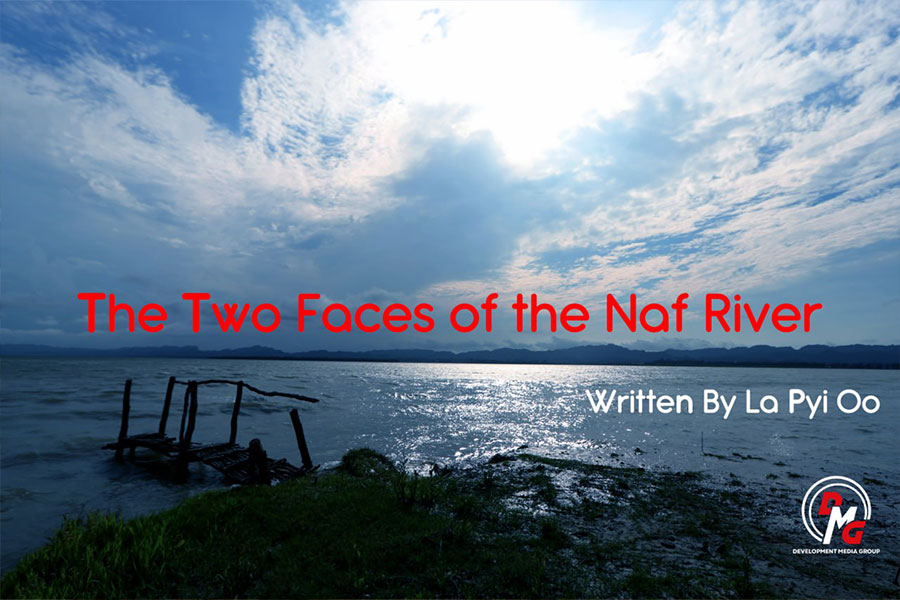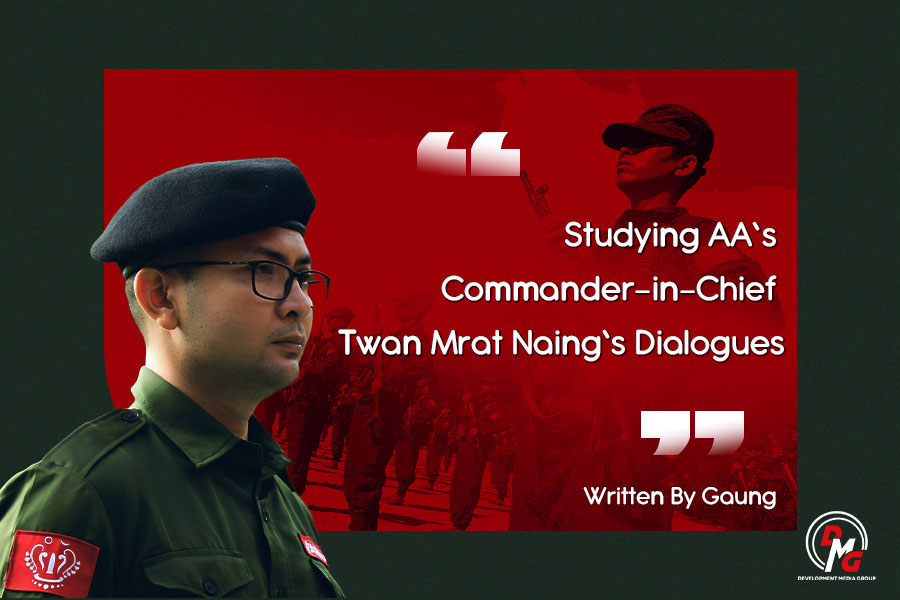- Junta unable to hold elections in dozens of wards and village-tracts in Sittwe, Kyaukphyu
- Fighting escalates between Myanmar military, Arakan Army in Ayeyarwady Region
- Regime steps up civilian arrests in Sittwe
- ULA safeguards Mrauk-U's ancient heritage
- Arakan on the Edge: What the DMG Landmine Impact Report Reveals About Myanmar's Deepening Humanitarian Crisis
Vox Pop: Observers share views on renewed fighting in northern Arakan
Myanmar’s military and the Arakan Army (AA) reached an informal ceasefire agreement ahead of the country’s November 2020 general election, after some two years of often-intense fighting in Arakan State. Military tensions have escalated this month, however, with clashes increasing in frequency and casualties reported on both sides, as well as hundreds of civilians displaced.
25 Aug 2022
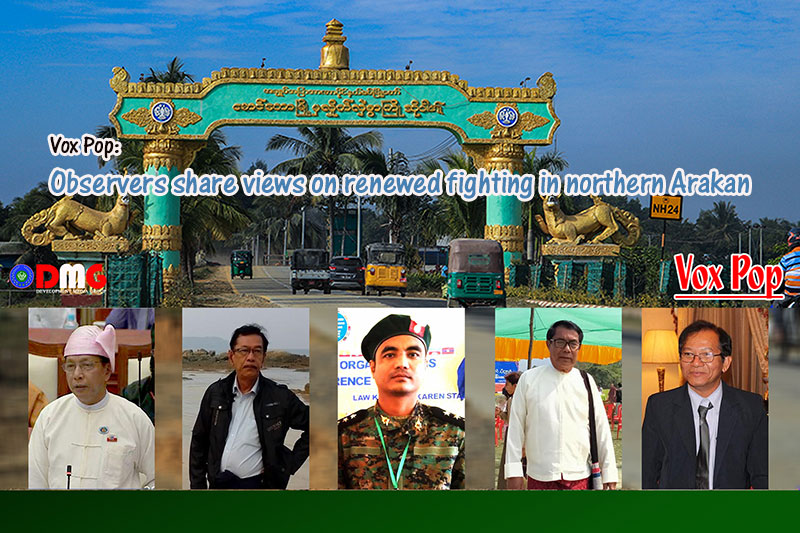
DMG Newsroom
Myanmar’s military and the Arakan Army (AA) reached an informal ceasefire agreement ahead of the country’s November 2020 general election, after some two years of often-intense fighting in Arakan State. Military tensions have escalated this month, however, with clashes increasing in frequency and casualties reported on both sides, as well as hundreds of civilians displaced.
Over recent weeks, hostilities have flared with regularity in Maungdaw Township, which was spared the worst of the fighting during the preceding two-year conflict. Combined contingents of junta and border guard forces have engaged AA troops along the Maungdaw-Bangladesh border on a near-daily basis.
Political and military observers recently spoke to DMG about what prompted the ongoing fighting in Maungdaw, and why Arakan State’s northernmost township is important for both sides.
U Pe Than || Veteran Politician
Maungdaw has been controlled by border guard police and military authorities. Being the border, Maungdaw is important for the military, especially because of Muslim problems and the Arakan Rohingya Salvation Army. If the United League of Arakan/AA can control that place, it will be able to establish ties with the Bangladeshi government. So, authorities will not give up that place.
At the same time, the area is crucial for the AA. So it has deployed large numbers of troops in Paletwa [in neighbouring Chin State] and at the border with Bangladesh and India. It is part of the AA strategy to pressure the Myanmar military into withdrawing from the area. The AA said at a recent press conference that the regime has removed seven of its outposts in Maungdaw.
In successive periods, authorities in Maungdaw were corrupt and they made money off illegal Muslim immigrants. They are also involved in the drug trade, and perhaps even top-level authorities might be involved in the drug trade. It is a significant issue in Maungdaw. So, the two sides will vie for the control of Maungdaw.
U Than Soe Naing || Myanmar Affairs Analyst
The AA has lately carried out operations in border towns. Rather than fighting face to face with the regime, it mainly attacks the outposts at the border. It is because security personnel assigned to those outposts are police and they are weaker in terms of size and weaponry. In Maungdaw, there is a border trade camp with Bangladesh. So, if it can control Maungdaw, this will bring not only military benefits but also economic benefits for the AA. So, the AA is conducting military operations to control the Maungdaw border trade zone.
Colonel Min Tun || Arakan National Council / Arakan Army (ANC/AA)
Speaking of Maungdaw, the area from a military point of view covers the entirety of Maungdaw; Buthidaung and Rathedaung, which previously were part of the Mayu District; as well as Sai Tin adjacent to Buthidaung; the Paletwa route; and the Maungdaw-Bangladesh route over the Naf River. So, the side that can control those areas will have a military advantage. And it will also bring other advantages like trade with Bangladesh, and control of the border.
Both sides will know better about their military situation. However, from other perspectives, any group that fights the Bamar military will win public support; not only the support of locals in Arakan but also the support of the entire Bamar people, because the military does not have the support of the Bamar people.
Previously, the military could play the racial card between Arakanese and Muslim people to their political advantage. But they can’t do so now. There has been a certain level of understanding between Arakanese and Muslim societies. So, if the military opens a front in Maungdaw, they are more likely to suffer heavier losses than the AA both militarily and politically, as well as economically.
U Maung Ohn || Former Arakan State MP, Maungdaw Township
The military has blocked off supply routes in Maungdaw, which is taking a toll on local people. This is also a reason for continued fighting in Maungdaw. Locals will suffer more if clashes intensify. There have been arrests of residents in Maungdaw, and more arrests will result in clashes. For example, the military will arrest administrators and young people if a clash happens near a village. The AA will not tolerate this.
So, there are real chances for clashes to continue in Maungdaw. The military has blocked off roads in northern Maungdaw, and also banned travel between Buthidaung and Maungdaw. Overall, the ULA/AA has control over Maungdaw, especially Kyein Chaung and beyond. The military has withdrawn from some outposts in northern Maungdaw, and some border guard police have deserted.
U Ye Htun || Former Lower House MP, Shan State
Locals will know better about why clashes are taking place in Maungdaw. We are far from there, and it is difficult for us to analyze the details. My view is that there are Muslim refugees as well as the ARSA [Arakan Rohingya Salvation Army] there. And there have been discussions on repatriation of Muslim refugees. So, it might be a reason.
Or they might also be fighting for control of the drug trade at the border, and the [legal] border trade. This is the same in our Shan State; armed groups vie for control of the border as it is important both militarily and economically. If the AA wants that, the regime will prevent the group from having it, and clashes happen as a result.





